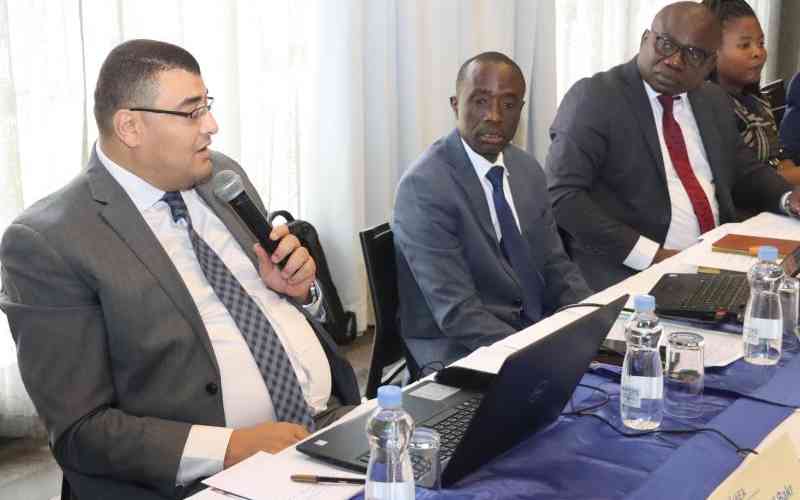
A weeklong meeting aimed at improving the regulatory oversight of Kenya's nuclear programme to achieve a 'high level' of safety has kicked off in Nairobi.
The Monday forum, officials said, targets to strengthen Kenya Nuclear Regulatory Authority (KNRA) work and align them to standards set by the International Atomic Energy Agency (IAEA).
Mr Shadrack Kiti, the KNRA Director for Licensing and Standard, said the top on the agenda is to develop an Integrated Management System (IMS) for the regulator aimed at ensuring efficiency, better visibility of standards and safety compliance demands.
He said that globally, there was an increased clamour to enhance regulatory leadership and management systems in countries like Kenya, who are introducing nuclear power programmes. Kenya hopes to have its first nuclear power plant up and running by 2035.
"This forum is a solid demonstration of KNRA's commitment to continuous improvement of its regulatory expertise. Once in place, an IMS will enable the regulator to increase efficiency. Instead of working in silos, we will lessen bureaucracy and discourage duplication," Mr Kiti said.
He added: "We will continue to work with the IAEA and every stakeholder of goodwill. We will consider even benchmarking in countries like Egypt which have integrated their nuclear regulatory systems. It's important to get it right."
On top of improved workflow, the IMS will ensure that inter-related economic, health, security, quality and environmental matters are not considered separately from nuclear safety matters by the regulatory authority.
- Peer review begins amid push for UHC and nuclear programme
- Hope for cancer patients as hospital introduces nuclear treatment
- State moves to reform radioactive waste care policies
- Nuclear power, cancer and claims of toxic waste in N. Eastern Kenya
Keep Reading
The IAEA team leading the Nairobi workshop are Gabriel Soare, Sherif Bakr and Mihai Murafa. Mr Soare, formally of the Canadian Nuclear Safety Commission, said the meeting provides a unique opportunity for KNRA staff to plan and work better guided by IAEA standards.
The KNRA team at the workshop included Director for Corporate Services Patrick Ataro, Compliance Director John Opar, Finance Deputy Director Anthony Nzau and Licensing Deputy Director Michael Atogo. Others were nuclear inspectors and department heads.
The forum noted that while the country does not operate nuclear power reactors yet, the government considers robust regulation a priority, with nuclear seen as a long-term option for meeting Kenya's growing energy demands.
Current estimates show that Kenya's total installed energy capacity comprises 863 MW of geothermal, 838 MW of hydro, 436 MW wind, 2 MW biomass, 173 MW solar and 678 MW of thermal. The country's installed electricity capacity as of 2023 stood at 3,321MW.
Last year, Kenya hosted representatives from 22 African countries to take stock of gains and challenges in nuclear regulation, with calls to governments to make binding commitments to international decrees on safe and secure utilization of nuclear.
On the radiation front, Kenya and other countries are increasingly looking towards robust improvement in patients' protection from radiation sources, tightening of authorisation and inspection, enforcement for safety and security of radiation sources, and proper monitoring of import and export of radiation sources.
According to KNRA Director General James Keter, the agency will continuously work with stakeholders and embrace the highest international standards towards the safety and protection of lives and property.
"We will work round the clock to ensure protection," Mr Keter said. KNRA is the successor to the Radiation Protection Board and is a product of the Nuclear Regulatory Act of 2019.
 The Standard Group Plc is a multi-media organization with investments in media
platforms spanning newspaper print
operations, television, radio broadcasting, digital and online services. The
Standard Group is recognized as a
leading multi-media house in Kenya with a key influence in matters of national
and international interest.
The Standard Group Plc is a multi-media organization with investments in media
platforms spanning newspaper print
operations, television, radio broadcasting, digital and online services. The
Standard Group is recognized as a
leading multi-media house in Kenya with a key influence in matters of national
and international interest.




